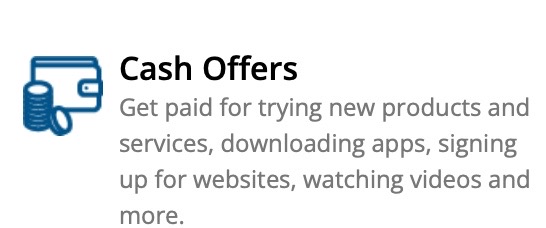Africa E-Commerce Market
The Africa e-commerce market is expected to exhibit a growth rate (CAGR) of 26.5% during 2023-2028.

Electronic commerce, commonly known as E-commerce, stands for the commercial transaction of goods or services over the internet. These transactions are primarily deployed on various business models, including business-to-customer (B2C), business-to-business (B2B), customer-to-customer (C2C), and customer-to-business (C2B). E-commerce platforms provide several advantages in comparison with conventional brick-and-mortar solutions, such as controlled inventory cost, improved profit margins, numerous discounts, hassle-free delivery of goods and services, etc. As a result, these platforms are widely adopted across various industries, including retail, consumer electronics, travel and leisure, FMCG, etc.
In Africa,
the increasing penetration of smart devices along with the growing internet connectivity has led to the emergence of e-commerce platforms. Moreover, the changing consumer inclination from brick-and-mortar retail channels towards online stores for hassle-free shopping experience is further augmenting the market growth. In line with this, the introduction of digital trends in the retail sector for enhancing product sales and reaching out to a larger consumer base is also propelling the market for e-commerce platforms in Africa. Additionally, several regional organizations are getting inclined towards e-commerce solutions for minimizing overhead operational costs and improving business efficiency. Apart from this, the growing integration of e-commerce platforms with various advanced technologies, such as artificial intelligence, predictive analytics, cloud computing, etc., is also bolstering the market growth in the region. In the coming years, the increasing penetration of numerous international e-commerce companies leading to several innovations in point-of-sale terminals, mobile payment solutions, and app-based commercial platforms will continue to drive the E-commerce market in Africa.

Key Market Segmentation:
IMARC Group provides an analysis of the key trends in each sub-segment of the Africa e-commerce market report, along with forecasts at the regional and country level from 2023-2028. Our report has categorized the market based on business model, mode of payment, service type and product type.
Breakup by Business Model:
- B2C
- B2B
- C2C
- Others
Breakup by Mode of Payment:
- Payment Cards
- Online Banking
- E-Wallets
- Cash-On-Delivery
- Others
Breakup by Service Type:
- Financial
- Digital Content
- Travel and Leisure
- E-Tailing
- Others
Breakup by Product Type:
- Groceries
- Clothing and Accessories
- Mobiles and Electronics
- Health and Personal Care
- Others
Breakup by Country:
Competitive Landscape:
The competitive landscape of the industry has also been examined with some of the key players being Alibaba Group, Amazon.com, Inc., Avito Holding AB, Bidorbuy.com Inc., DHL International GmbH, DealDey Ltd., eBay Inc., GumTree.com Limited, Jiji Press Ltd., Jumia Technologies AG, Konga Online Shopping Ltd., Naspers Ltd., and OLX Group.
Report Coverage:
| Report Features | Details |
|---|---|
| Base Year of the Analysis | 2022 |
| Historical Period | 2017-2022 |
| Forecast Period | 2023-2028 |
| Units | US$ Million |
| Segment Coverage | Business Model, Mode of Payment, Service Type, Product Type, Country |
| Countries Covered | South Africa, Nigeria, Egypt, Morocco, Kenya, Others |
| Companies Covered | Alibaba Group, Amazon.com, Inc., Avito Holding AB, Bidorbuy.com Inc., DHL International GmbH, DealDey Ltd., eBay Inc., GumTree.com Limited, Jiji Press Ltd., Jumia Technologies AG, Konga Online Shopping Ltd., Naspers Ltd., and OLX Group |
| Customization Scope | 10% Free Customization |
| Report Price and Purchase Option | Single User License: US$ 2699 Five User License: US$ 3699 Corporate License: US$ 4699 |
| Post-Sale Analyst Support | 10-12 Weeks |
| Delivery Format | PDF and Excel through Email (We can also provide the editable version of the report in PPT/Word format on special request) |
Key Questions Answered in This Report
– We expect the Africa e-commerce market to exhibit a CAGR of 26.5% during 2023-2028.
- The rising penetration of smart devices, along with the growing utilization of e-commerce platforms, as they provide various benefits, including controlled inventory cost, improved profit margins, hassle-free delivery of goods and services, etc., is primarily driving the Africa e-commerce market.
- The sudden outbreak of the COVID-19 pandemic has led to the increasing adoption of e-commerce platforms across several African nations, owing to the changing consumer inclination from conventional brick-and-mortar distribution channels towards online retail platforms, during the lockdown scenario.
- Based on the product type, the Africa e-commerce market can be bifurcated into groceries, clothing and accessories, mobiles and electronics, health and personal care, and others. Currently, clothing and accessories exhibit a clear dominance in the market.
– On a regional level, the market has been classified into South Africa, Nigeria, Egypt, Morocco, Kenya, and others, where South Africa currently dominates the Africa e-commerce market.
Some of the major players in the Africa e-commerce market include Alibaba Group, Amazon.com, Inc., Avito Holding AB, Bidorbuy.com Inc., DHL International GmbH, DealDey Ltd., eBay Inc., GumTree.com Limited, Jiji Press Ltd., Jumia Technologies AG, Konga Online Shopping Ltd., Naspers Ltd., and OLX Group.
Africa e-commerce
The Africa e-commerce market has been growing rapidly in recent years, driven by increasing internet and mobile phone penetration rates, rising consumer spending, and a growing middle class. According to a report by McKinsey & Company, the e-commerce market in Africa is expected to reach $75 billion by 2025, up from $8 billion in 2013.
Some of the key players in the Africa e-commerce market include Jumia, Konga, Kilimall, Takealot, and Souq. These companies offer a range of products and services, from fashion and electronics to groceries and health and beauty products.
However, the Africa e-commerce market still faces several challenges, including poor logistics infrastructure, limited payment options, and low digital literacy rates in some regions. Nevertheless, with the continued growth of internet and mobile phone usage in Africa, the e-commerce market is expected to continue to expand in the coming years.







